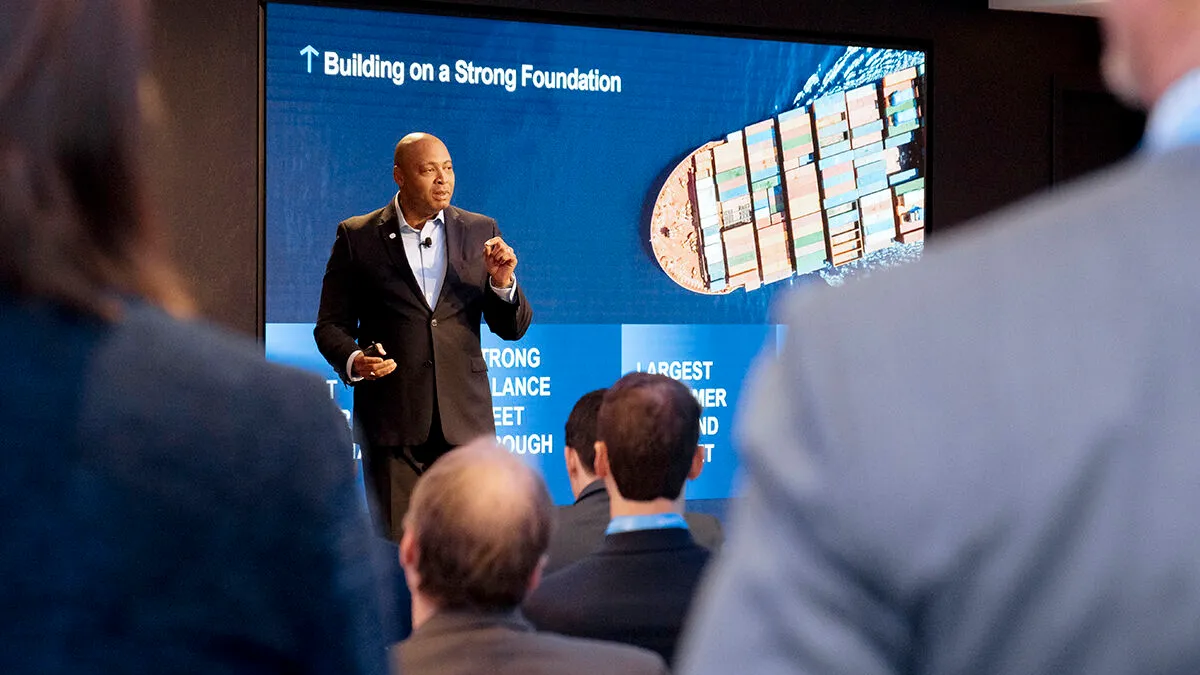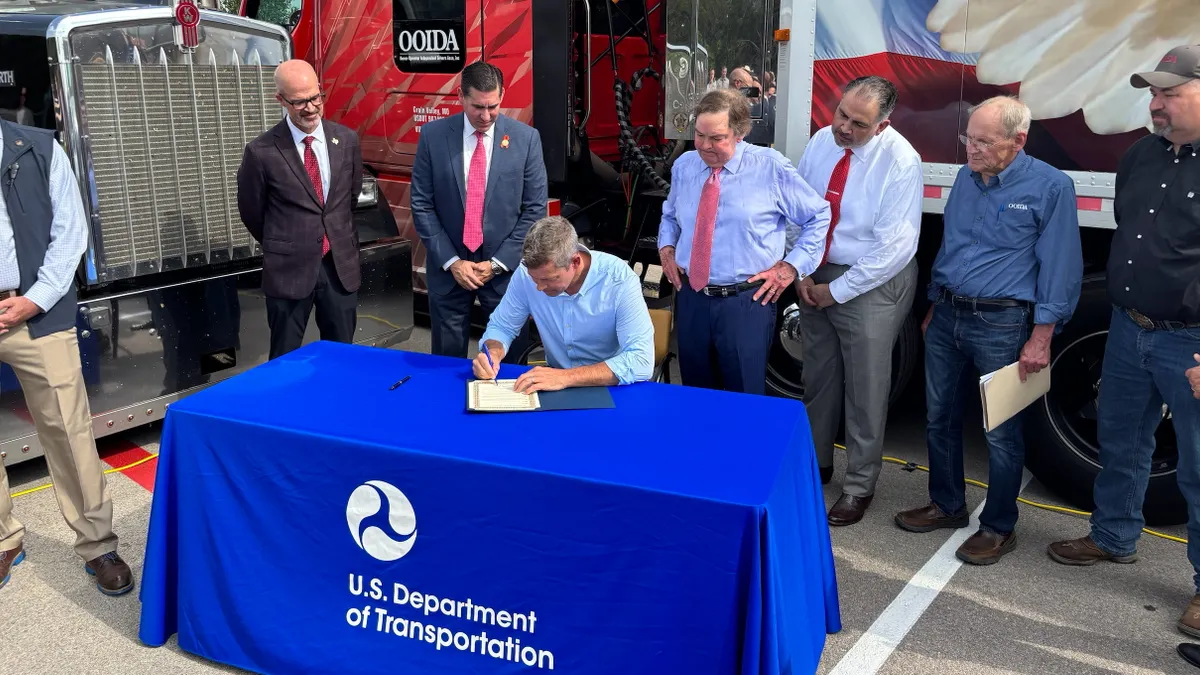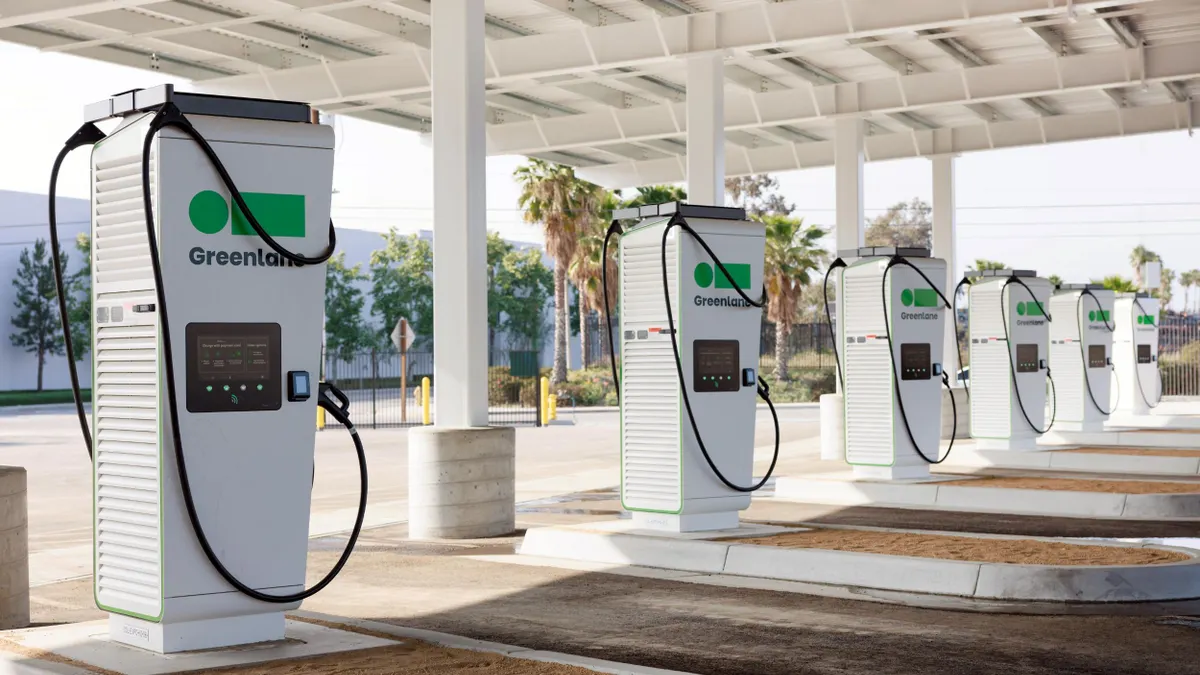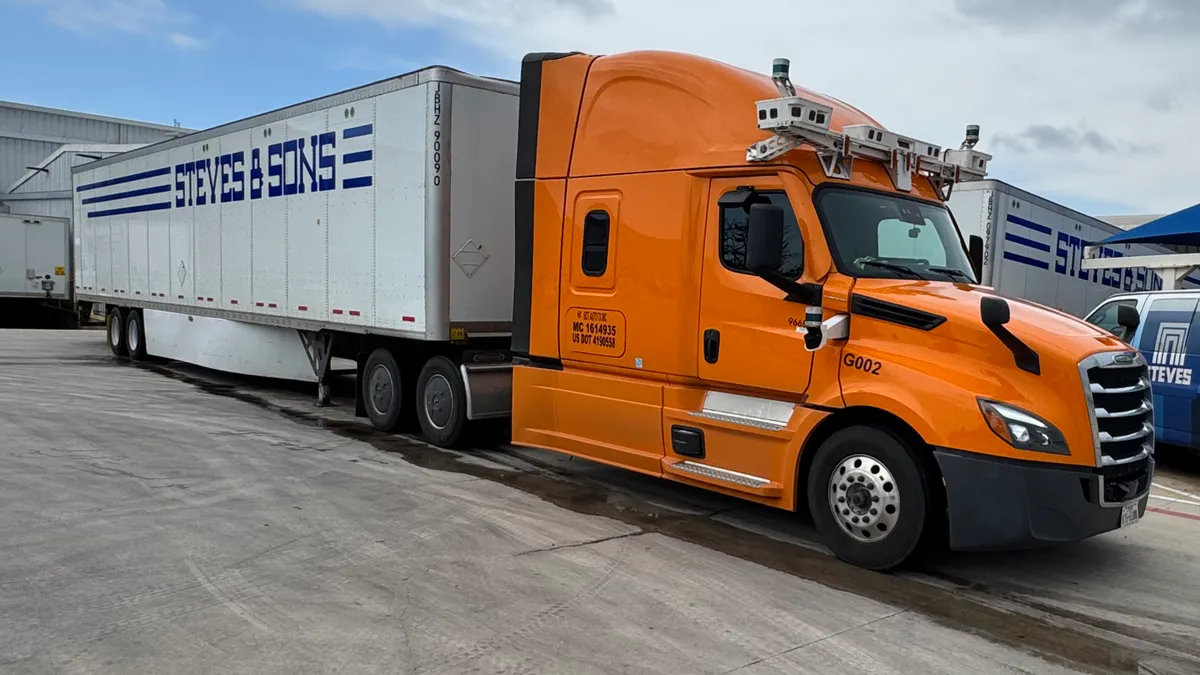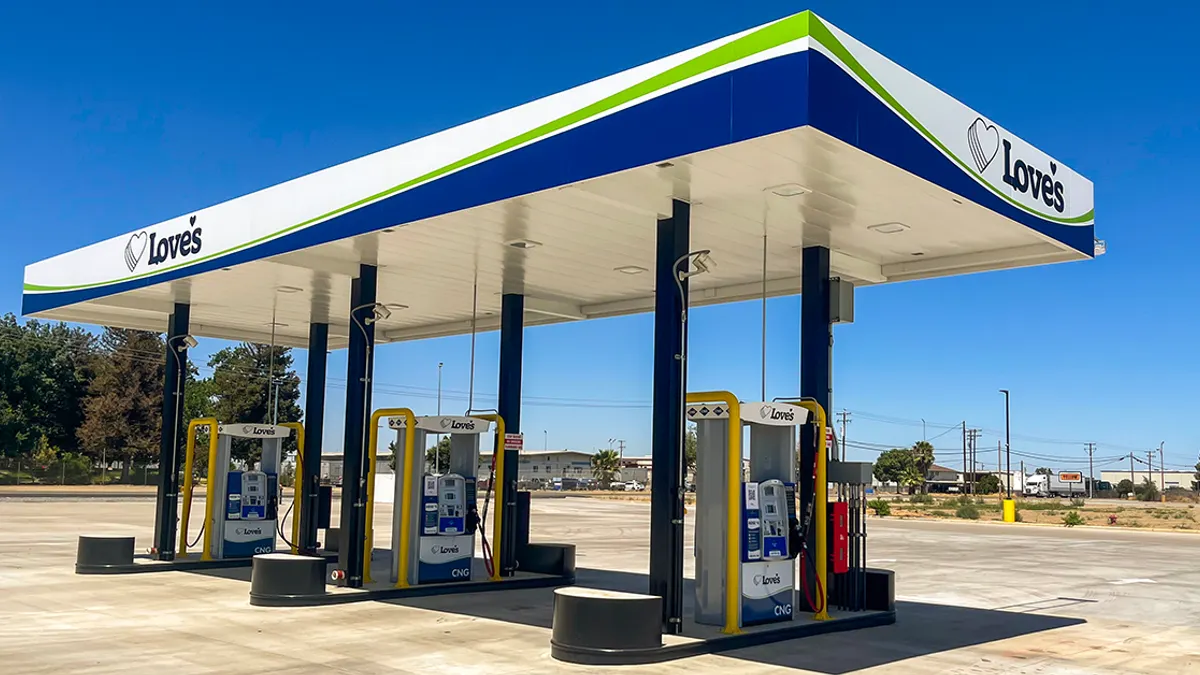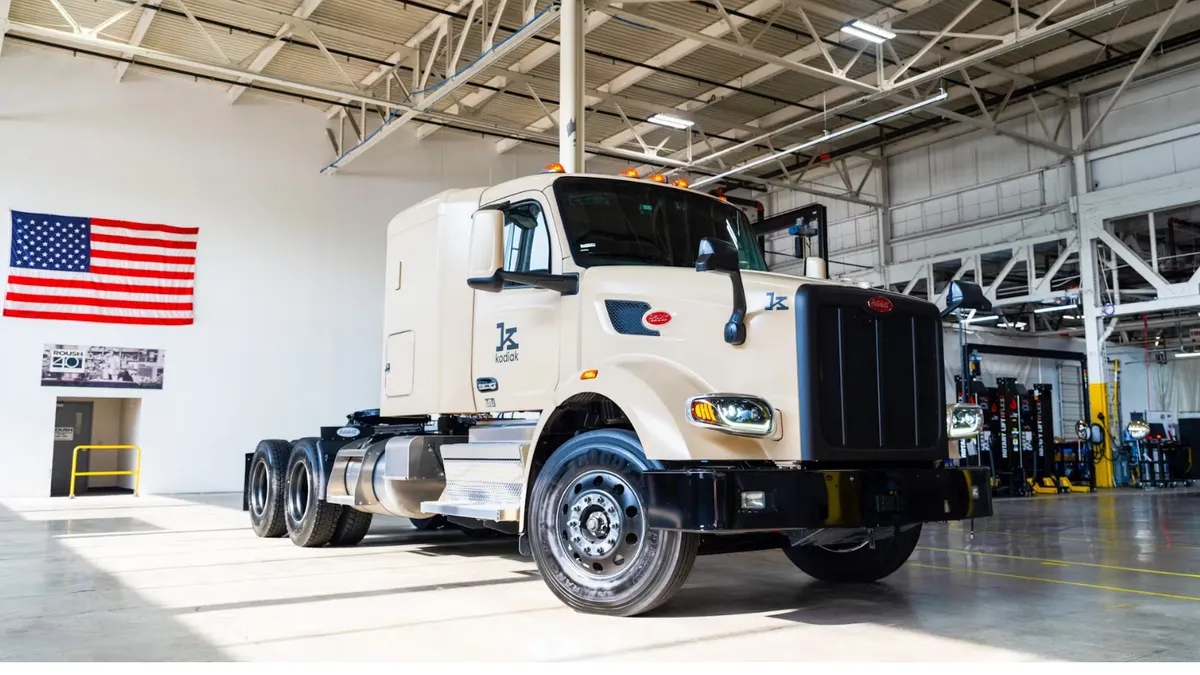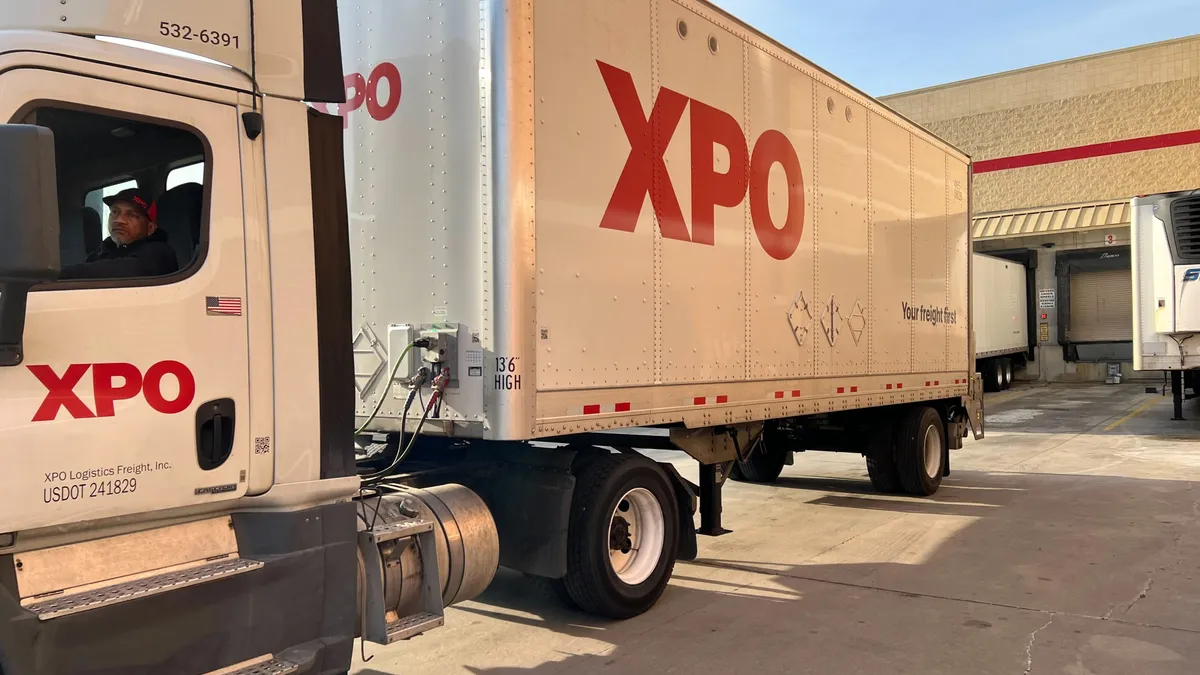This is the first of a two-part interview with C.H. Robinson President and CEO Dave Bozeman following the company’s 2024 Investor Day.
Resilient supply chains and C.H. Robinson Worldwide’s expertise are helping businesses strategize responses to potential tariffs, such as by mapping out rerouting plans, according to President and CEO Dave Bozeman.
That’s the message he shared at the company’s Investor Day event last week in New York, as well as in a one-on-one interview Monday with Trucking Dive.
“We solve really, really high, intense problems for our customers,” Bozeman told investors, adding that tariffs have impacted C.H. Robinson before and will do so again. His remarks came amid moves by businesses already responding to new tariffs planned by President-elect Donald Trump.
The brokerage giant’s Investor Day last week was its first in seven years. During the event, executives shared takeaways on the company’s technology and restructuring initiatives as well as a forecast to potentially achieve over $1 billion in annual operating income for 2026.
Bozeman, a former Ford Motor Co., Amazon, Caterpillar and Harley-Davidson executive, said C.H. Robinson is focused on solving its customers’ tariff-related challenges, such as changes to a shipment’s origin or destination. He told Trucking Dive the brokerage can help customers pivot depending on their needs.
Editor’s note: This interview was edited for brevity and clarity.
TRUCKING DIVE: Bank of America analyst Ken Hoexter mentioned at Investor Day how your company is tied to one in every 10 U.S.-Mexico truckload crossings. How are you preparing currently if tariffs play out? Are you seeing differences across different types of industries for your customers? How are you wargaming it at this moment?
DAVE BOZEMAN: So we do war-gaming like any good company would constantly do. Tariffs, potential port strikes, acts of God, disruption — this isn't the first time we've seen it, and it's not going to be last time.
[We] really lean on the true value proposition of Robinson. That's what we do in dealing with [disruptions], specifically on tariffs. We've seen this before, and we helped our customers deal with that, just like we're doing this time. And there's various tariffs that are being talked about. We don't know what's going to happen in January or if tariffs will come or not, but what we do know is that we're going to continue to work with our customers to navigate through it.
We have a 30-year relationship in Mexico. We know that we have a 100-year relationship in Canada. You properly called out when it comes to movement out of Mexico. Yeah, one in every 10, we do that. But we also have 1.5 million square [feet in] facilities on that border crossing for Mexico that allows us to help move those goods. And it's something that we're going to tell this administration, like every administration: we feel like great infrastructure only helps us in the movement of those goods.
So we are working in the trenches with our customers on dealing with potential tariffs, and that is if they're going to move to different origin and destination for goods. Well, that's the strength of Robinson. We have that ability to do that within global forwarding as well as our domestic transport as well. We have diversified in Southeast Asia. We have an office in the Philippines that we opened. If things want to move to Vietnam and start the origin there, we can do that. And we're one of the major players in the Trans-Pacific lane. So we can move product over.
But we also have services that are super strong when it comes to customs. You know, 1.4 million customs transactions that we do annually, we move things over in consolidation, on warehousing. So this is just a number of things that when we sit down with customers, we say, ‘We can bring you from inland China to North Carolina every day, and we can handle the whole thing to do that. So when it comes to tariffs, we can move you around. Help counsel you. What are the different modes that you want to use? Where do you want to land product? How do you want to move that product?’ And we've been doing that for for several years, and specifically this year, working with customers on these potential callouts of tariffs or potential port strikes.
C.H. Robinson has noted only about one in five initial nearshoring announcements actually came to fruition. Do you see things slowing down or being delayed until we know more about this? What sorts of trends are you seeing with nearshoring? What are your expectations?
That question comes up a bit, and I usually go back and allow people to see a broader view of that question and think back to how the pandemic really changed the way that shippers view their supply chains. And the resiliency of supply chains really came into play during and after the pandemic.
So it's not like people have not been working on this, which is why you see some of the pull ahead and nearshoring and things like that. A lot of that has been occurring already. It's the resiliency of the supply chains, which we feel like we've been a part of in helping shippers go through it. Are we still seeing some of it? Sure we're seeing people friendshoring or nearshoring. That's going to be a constant, but it was already always in play.
Naturally, businesses want to see: Are things going to manifest out into something specific? And we have so many customers, 95,000 customers. Different ones have different views, and we play in so many verticals: automotive, healthcare, energy, retail. They all have different needs. And that's the power of Robinson because we provide those tailored solutions for what they may need.
We don't see anything material when it comes to like pull aheads and things like that. We have some, and they're showing that's a continuum, but it's a continuum off of building a resilient supply chain that we've been a part of for several years now.



